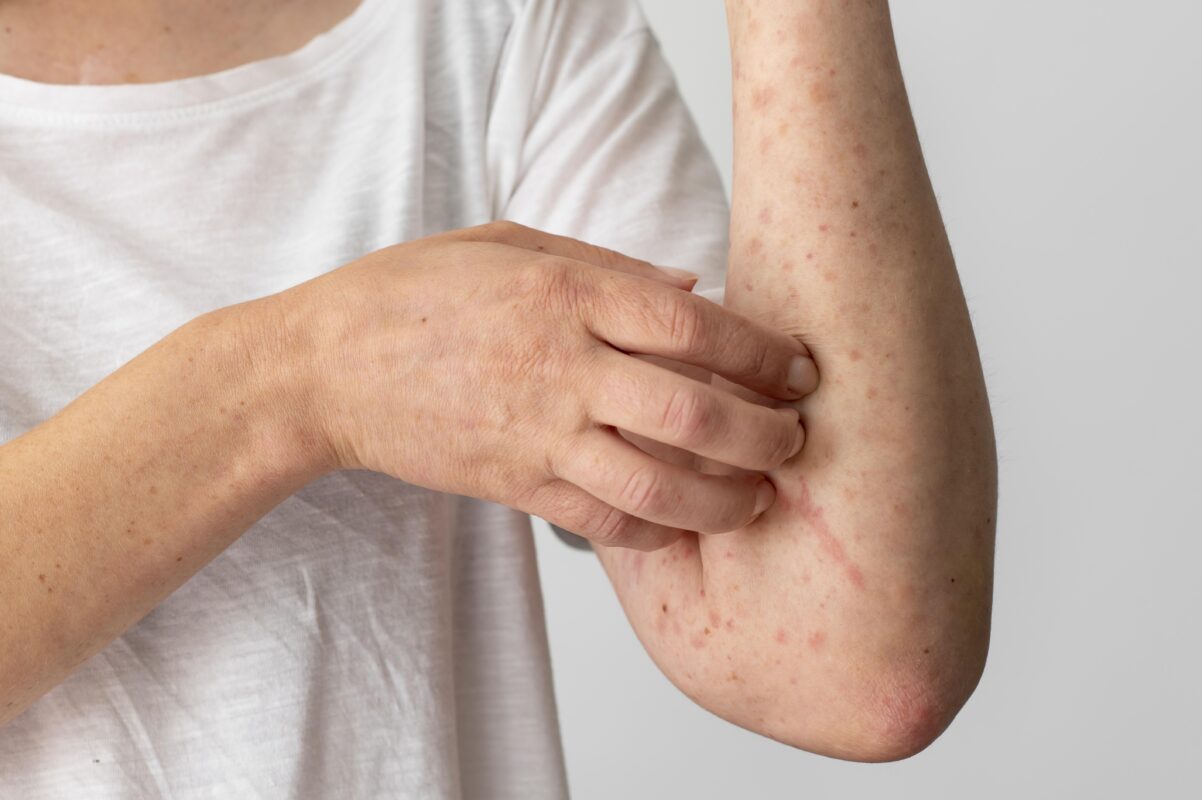Understanding Allergies: Causes, Symptoms, and Management

Allergies are a common condition that affect millions of people worldwide. They occur when the immune system reacts to a foreign substance—such as pollen, bee venom, pet dander, or certain foods—that doesn’t cause a reaction in most people. These substances, known as allergens, can trigger a variety of symptoms ranging from mild discomfort to severe, life-threatening reactions. In this blog, we’ll explore the causes, symptoms, and management of allergies to help you better understand and cope with this condition.
What Causes Allergies?
An allergy occurs when your immune system mistakenly identifies a harmless substance as a threat and overreacts to it. When you’re exposed to an allergen, your immune system produces antibodies called Immunoglobulin E (IgE). These antibodies trigger the release of chemicals such as histamine, which cause the symptoms of an allergic reaction.
Common allergens include:
- Pollen: Trees, grasses, and weeds release tiny pollen particles into the air that can trigger allergic reactions.
- Dust mites: These tiny organisms thrive in household dust and can cause allergic reactions when inhaled.
- Pet dander: Proteins found in the skin, urine, and saliva of furry pets like cats and dogs can be allergens.
- Food: Certain foods, including peanuts, shellfish, eggs, and milk, are common triggers for food allergies.
- Insect stings: Bee stings, wasp stings, and other insect bites can cause severe allergic reactions in some individuals.
- Mold: Mold spores in the air can cause allergic reactions when inhaled.
- Medications: Some people experience allergic reactions to medications, such as penicillin or aspirin.

Common Symptoms of Allergies
Allergic reactions can vary in severity and affect different parts of the body. Common symptoms include:
- Respiratory Symptoms: Sneezing, runny or stuffy nose, coughing, wheezing, shortness of breath, and itchy or watery eyes are typical of respiratory allergies, such as hay fever (allergic rhinitis).
- Skin Reactions: Hives, eczema, and contact dermatitis are common skin reactions that can result from allergies.
- Gastrointestinal Symptoms: Food allergies can cause nausea, vomiting, diarrhea, or abdominal pain.
- Anaphylaxis: In severe cases, an allergic reaction can lead to anaphylaxis, a life-threatening condition that requires immediate medical attention. Symptoms of anaphylaxis include difficulty breathing, a rapid drop in blood pressure, and loss of consciousness.
Managing Allergies
While allergies cannot be cured, they can be effectively managed with a combination of lifestyle changes, medications, and, in some cases, immunotherapy.
- Avoidance of Allergens: The most effective way to manage allergies is to avoid the substances that trigger your symptoms. For example, stay indoors on high-pollen days, use air filters, regularly clean your home to reduce dust mites, and be cautious with foods that have caused reactions in the past.
- Medications: Several medications are available to relieve allergy symptoms:
- Antihistamines: These medications help reduce sneezing, itching, and runny nose by blocking the effects of histamine.
- Decongestants: These can provide temporary relief from nasal congestion.
- Corticosteroids: Nasal sprays and oral corticosteroids reduce inflammation and can be effective for more severe symptoms.
- Epinephrine: For those at risk of anaphylaxis, carrying an epinephrine auto-injector (such as an EpiPen) is crucial.
- Immunotherapy: Allergy shots or sublingual tablets can gradually desensitize the immune system to specific allergens, reducing the severity of reactions over time. This treatment is often used for people with severe allergies who do not respond well to other treatments.
- Lifestyle Changes: Implementing changes in your environment and habits can help reduce exposure to allergens. For example, using hypoallergenic bedding, regularly washing pets, and maintaining a clean, dust-free home can significantly reduce allergy symptoms.
- Emergency Plan: If you or someone in your family has severe allergies, it’s important to have an emergency plan in place. This should include knowing how to recognize the signs of anaphylaxis and having quick access to emergency medication like epinephrine.

Sonuç
Allergies can be challenging to live with, but with the right strategies and medical care, you can manage symptoms and lead a healthy, active life. Understanding your triggers, avoiding allergens when possible, and having an action plan in place are key steps in controlling allergic reactions and improving your quality of life.
American College of Allergy, Asthma & Immunology. (2023). Allergies. Retrieved from https://acaai.org/allergies/
Mayo Clinic. (2023). Allergies: Symptoms and causes. Retrieved from https://www.mayoclinic.org/diseases-conditions/allergies/symptoms-causes/syc-20351497
National Institute of Allergy and Infectious Diseases. (2023). Allergic Diseases. Retrieved from https://www.niaid.nih.gov/diseases-conditions/allergic-diseases
Cleveland Clinic. (2023). Allergies: Types, Symptoms, and Treatment. Retrieved from https://my.clevelandclinic.org/health/diseases/8614-allergies
Centers for Disease Control and Prevention (CDC). (2022). Common Allergens and Allergic Reactions. Retrieved from https://www.cdc.gov/ncbddd/pediatricgenetics/guide/documents/fact-sheet-allergies.pdf









